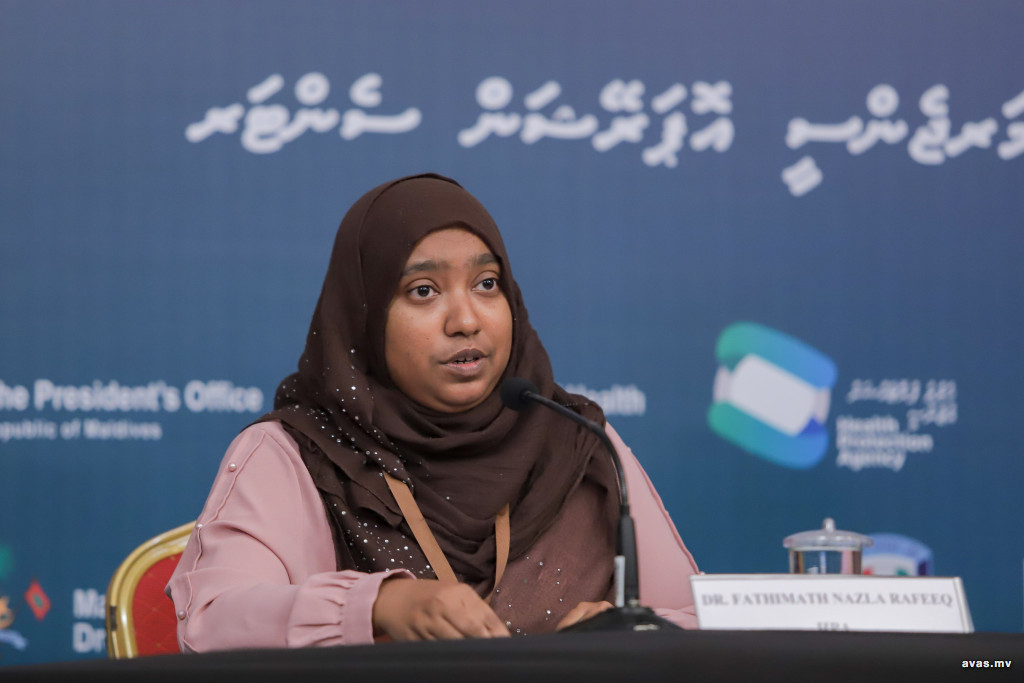Male’, Maldives – Spokesperson of the Health Emergency Operation Centre (HEOC) Dr. Nazla Rafeeq has said that the 14 day quarantine period after travel from an area with active Covid-19 cases is not decided by the extent of the spread of the virus, but is rather based on results of scientific research.
Dr. Nazla said this on Thursday night, at a press briefing by HEOC amid the public questioning the necessity of a 14 day quarantine considering the low number of cases in Maldives.
She explained that , while lockdown can be eased after assessing the extent of spread in Male’, this does not apply to the quarantine period as the basis for this period is not the current Covid-19 situation, but rather the incubation period agreed on by scientists, which is 14 days. She added that this period will not change until newer scientific research on the matter comes to light.
She also highlighted efforts to identify individuals who have unknowingly contracted Covid-19 and recovered, through an antibody sero surveliance, stating that sample taking for Maldivians in this survey is completed and is now at the data analysis phase, with results expected sometime next week. She further added that the Rapid Response Team is taking random samples from expatriates for the same survey.
Member of the Covid-19 Technical Advisory Group (TAG), Dr. Nazla Musthafa detailed this research, saying that tests done after a 5 day quarantine period identify only 5% of Covid-19 patients, 7 days see a 80% identification rate with 11 days of quarantine bringing the identification rate up to 93%. After the standard quarantine period of 14 days, 99% of COVID-19 patients are identified.
Dr. Nazla Musthafa said that Health facilities in Maldives have faced great difficulties since the pandemic started, and said that due to difficulties travelling to Male’ for treatment, local health centers in islands have just been barely able to treat patients. And that with a COVID vaccine becoming available in the near future, it would be extremely difficult to effectively distribute the vaccine if another outbreak happens.





